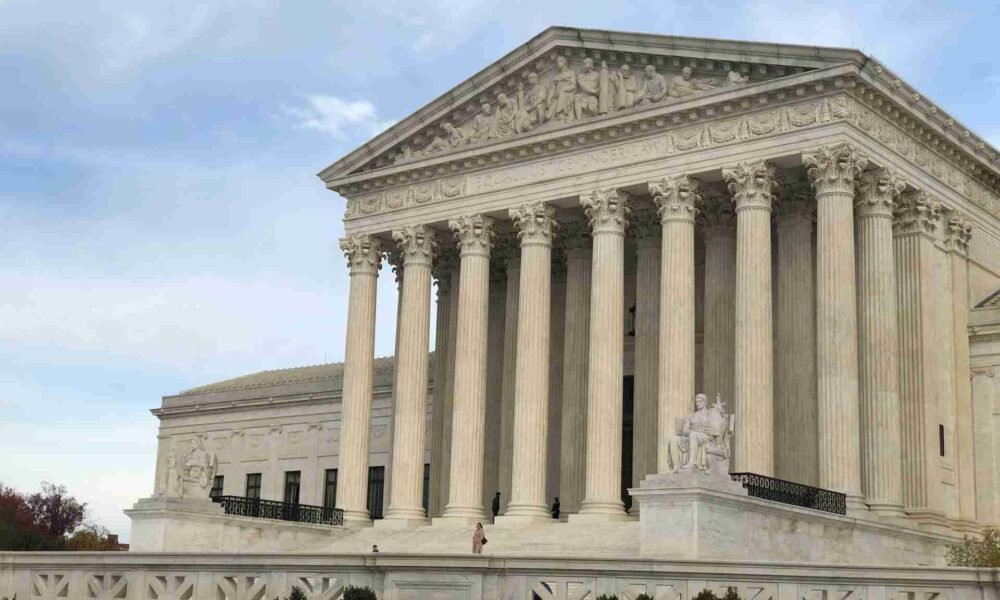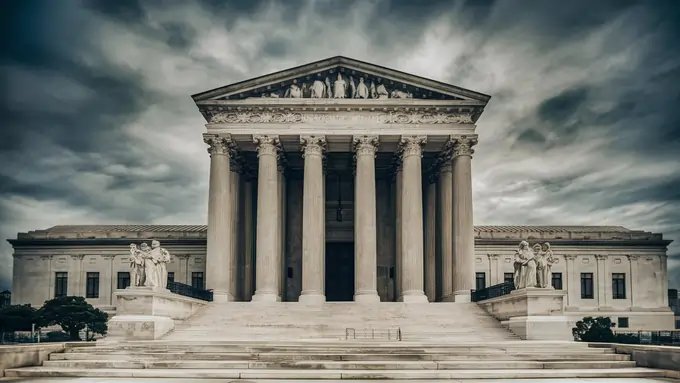
Understanding Legal Rights: Exploring Natural Rights, Liberty, and Types of Rights
In this intricate landscape of Legal rights and liberties, understanding the nuances that govern our existence is paramount. From the Stanford Encyclopedia of Philosophy (2021) to Oxford University Press, scholars have long grappled with the complexities of legal and natural rights. This article delves into the heart of these multifaceted concepts, illuminating their significance and offering a comprehensive guide for navigating this labyrinth.
What Constitutes a Legal Right?
So, what exactly are Legal Rights? Well, think of them as the VIP passes the law gives you to do or have something. For instance, the right to speak your mind without getting in trouble – that’s a Legal Right. And it’s not just a free-for-all; there’s a bunch of rules, like you can’t just shout “fire” in a crowded place when there’s no fire. So, e.g., your right to own stuff, that means no one can just waltz in and take your things. Basically, if the law says you can do it, i.e., it’s written down somewhere in legal speak, you’ve got a Legal Right to it.
Understanding the Framework of Legal Rights
Legal rights are the cornerstones of modern societies, safeguarding our freedoms and shaping the fabric of justice. These rights are enshrined in laws and constitutional provisions, granting individuals specific entitlements and protections. They serve as the bedrock upon which the rule of law rests, ensuring that no individual or institution can override or exclude others from their rightful claims.
Navigating the Intersection of Positive Law and Individual Rights
Positive law, the body of rules and regulations enacted by governing bodies, plays a pivotal role in defining legal rights. Through this system, certain rights are bestowed upon individuals, while others are restricted or curtailed for the greater good. The interplay between positive law and individual rights is a delicate balance, one that must continually adapt to societal changes and evolving moral landscapes.
How Legal Rights are Enforceable and Recognized
For legal rights to be meaningful, they must be enforceable and recognized by the legal system. This enforcement often involves the judiciary, which interprets and applies the law to specific cases, ensuring that individuals can exercise their rights without undue interference. Moreover, the recognition of legal rights is a fundamental aspect of a just society, as it affirms the inherent dignity and worth of every person.
Exploring the Essence and Significance of Natural Rights

Diving into what natural rights really mean, it’s like unpacking a treasure chest from way back. Imagine, since around xiv century, people have been buzzing about this one idea – that there’s one right we all have just ’cause we exist. Crazy, right?
Fast forward to the 18–19 centuries, and you’ve got scholars tossing around big numbers, like 189 reasons why these rights are a big deal. But, here’s the kicker – sometimes, they’d lapse or omit the essentials, leaving us scratching our heads.
By the time we hit 191, it’s like, e.g., we’ve gotton a bit more of a grip on the significance, but still, there’s always that ‘i.e., what’s missing?’ vibe. Makes you wonder what we’re overlooking, doesn’t it?
Natural Law Theories and the Basis of Natural Rights
Natural rights, rooted in the philosophical traditions of thinkers like Finnis and Nozick, are inherent entitlements that exist independently of human-made laws. These rights are believed to arise from the very nature of human beings and are considered inalienable and self-evident. Philosophers have long contended that natural rights form the bedrock of political thought and serve as a moral compass for the development of just and equitable societies.
The Inalienable Right to Life, Liberty, and Property
Among the most widely recognized natural rights are the rights to life, liberty, and property. These fundamental rights are often cited as the basis for human dignity and self-determination, ensuring that individuals can pursue their aspirations without unreasonable exclusion or coercion. The right to life safeguards one’s existence, while the right to liberty protects personal autonomy and the freedom to make choices without undue interference.
How Natural Rights Influence Modern Political Philosophy
The concept of natural rights has profoundly shaped modern political theory and the structure of contemporary societies. Philosophers like John Locke and Jean-Jacques Rousseau argued that governments derive their authority from the consent of the governed, and that their primary purpose is to secure and protect these inalienable rights. This philosophical underpinning has inspired numerous revolutions and continues to influence debates on human rights, individual liberties, and the role of government.
Liberty Defined: Distinguishing Between Types of Rights
So, in 2022, I stumbled upon this rad piece by Stanford University all about the nitty-gritty of our rights. It’s like, we all chat about wanting rights, but not all rights are created equal, ya know? There’s this concept where our rights ain’t just about ego trips, but about the real deal – like the right of the people to chill without worrying about someone barging in. And, oh boy, don’t even get me started on the whole right to ownership thing. It’s a jungle out there.
Now, diving deeper, some smarty-pants like Nickel talks about substantive vs. exclusionary rights. Substantive sounds all fancy, meaning you must give folks their due, like ensuring people to be secure, whereas exclusionary rights are more about keeping away from stuff that’s immoral or a total no-go, like committing a tort or crime. It’s like a general rule of thumb; some things you just don’t do, without first thinking about the ripple effects.
And here’s a curveball – this notion of individualism vs. coercive actions. It’s like, everyone’s on this quest for personal freedom, but not if it means stepping on someone else’s toes. Liberty’s a tricky beast, man. It demands a kind of egoism check at the door. So, when we talk rights, it’s a whole stew of ideas – federal disability rights, the right of the people to peace of mind, and not just something to be exempt from ’cause history or some predecessor said so. It’s about striking that balance, making sure one dude’s liberty doesn’t become another’s cage. Heavy stuff, right?
Negative Rights vs. Positive Rights: Balancing Liberty and Social Obligations

In the realm of rights, a crucial distinction exists between negative rights and positive rights. Negative rights, such as the right to freedom of speech or religion, impose a duty on others to refrain from interfering with an individual’s liberties. Positive rights, on the other hand, require affirmative action or the provision of certain goods or services, such as the right to education or healthcare.
The Critical Role of Civil Liberties in Safeguarding Freedom
Civil liberties are a subset of legal rights that protect fundamental freedoms and prevent a person from being coerced or compelled by the government. These liberties, enshrined in constitutions and laws, encompass freedom of speech, religion, assembly, and due process, among others. Safeguarding civil liberties is crucial for preserving individual autonomy and curbing the potential abuse of governmental power.
Liberty and Moral Rights: The Quest for a Harmonious Society
While legal rights are codified in laws, moral rights stem from ethical principles and societal norms. These rights often overlap, but tensions can arise when legal rights conflict with deeply held moral convictions or long-standing cultural traditions. Resolving such conflicts requires a delicate balance and a recognition that both legal and moral rights play vital roles in promoting a harmonious and just society.
The Rich Tapestry of Rights: Individual, Social, and Moral
When we dive into the rich tapestry of rights: individual, social, and moral, it’s like opening a can of worms, but in the best way. For starters, there’s this whole debate about whether a right would or wouldn’t be an absolute right. Like, you’ve got your basic rights, e.g., the right to equality, that seem pretty straightforward, right? But then, sprinkle in that two rights might clash, and things get spicy. You can’t just provide rights willy-nilly without thinking about how they all fit together.
Now, let’s talk rights promote good stuff vibes. We’re not just talking any rights, but those cool rights also anchored by serious thought, like Jeremy Bentham or Kant level deep. And these rights aren’t just floating in the ether; they’re grounded in things like federal law, which can forbid or sanction actions, and have mechanisms to annul or reprint what doesn’t work. It’s the whole laws that protect us framework, making sure everybody gets a fair shake.
Then there’s the nitty-gritty, like how these rights are detailed by smarty-pants institutions, i.e., Stanford University‘s Metaphysics Research Lab. They break down how rights arise, the distinction between having the right to use stuff and not using your rights to hoard stolen goods. Because let’s be real, just because you lawfully can do something, doesn’t mean you should—don’t be that person. It’s about the purpose of securing the good life for all, making sure we’re not stepping on each other’s toes.
Unpacking the Complex Relationship Between Individual and Social Rights
The relationship between individual rights and social rights is a complex and often contentious issue. Individual rights, such as the right to property or the right to freedom of expression, emphasize personal autonomy and liberty. Social rights, on the other hand, focus on collective well-being and aim to promote equality, access to resources, and social justice.
Moral Rights: The Fabric That Binds Legal Norms and Human Dignity

Moral rights are intrinsically tied to human dignity and serve as the foundation for ethical behavior. These rights, which include the right to be treated with respect and the right to have one’s autonomy acknowledged, transcend legal frameworks and resonate across cultures. Respecting moral rights is essential for fostering a society that values human worth and upholds the intrinsic dignity of every individual.
Contractual Rights: From Theoretical Constructs to Practical Applications
In the realm of business and commerce, contractual rights play a crucial role in facilitating economic transactions and interactions. These rights, derived from legally binding agreements between parties, establish obligations, duties, and entitlements that govern the exchange of goods, services, or other considerations. Understanding and enforcing contractual rights is vital for maintaining trust, promoting fair dealings, and ensuring the smooth functioning of markets.
See Also: Philosophical and Legal Underpinnings of Rights
Delving into Rights Theory Through the Lenses of Hobbes, Hart, and Others
Philosophers and legal theorists have long grappled with the complexities of rights, offering diverse perspectives and frameworks for understanding their nature and implications. Thinkers like Thomas Hobbes and H.L.A. Hart have contributed seminal works that explore the relationship between rights, duties, and the role of the state in securing these entitlements. Their insights continue to shape contemporary debates and inform our understanding of the philosophical foundations of rights.
The Evolution of Rights: A Journey from Ancient Natural Law to Contemporary Legal Theories
The concept of rights has undergone a remarkable evolution, tracing its roots back to ancient natural law theories and gradually evolving into the sophisticated legal frameworks we recognize today. This journey has been marked by intellectual discourse, societal upheavals, and the continuous refinement of our understanding of the intricate interplay between rights, duties, and the pursuit of justice. As our societies continue to progress, the exploration of rights will undoubtedly remain a central theme in legal, philosophical, and political thought.
Linking Rights with Duties: The Philosophical Debate on Rights and Responsibilities
One of the enduring debates in the realm of rights concerns the relationship between rights and duties or responsibilities. Philosophers have long contended that rights are inherently accompanied by correlative duties, arguing that the exercise of rights must be balanced with a recognition of one’s obligations to others and to society at large. This philosophical discourse has profound implications for how we conceptualize and implement rights in practice, shaping our understanding of individual liberties and social responsibilities.
FAQs
What are legal rights give an example?
Legal rights are entitlements and protections granted by laws and constitutions. Examples include the right to freedom of speech, the right to due process, and the right to property ownership.
What are my basic legal rights?
The right to life: This is one of the most fundamental human rights, protecting individuals from being arbitrarily deprived of life.
The right to liberty and due process: This includes the rights to be free from unreasonable detention, to receive a fair trial, and to be presumed innocent until proven guilty.
The right to freedom of speech, religion, assembly, and press: These civil liberties protect individuals’ ability to express themselves, practice their beliefs, gather peacefully, and access information.
The right to equal protection under the law: This right prohibits discrimination based on race, color, religion, sex, or national origin in the application of laws.
The right to vote: In democratic societies, citizens have the right to participate in the political process through free and fair elections.
Property rights: Individuals have the right to acquire, possess, and protect their legally obtained property from unreasonable search, seizure, or taking without due process.
What are legal rights in us?
In the United States, legal rights are derived from the U.S. Constitution and its amendments, as well as federal and state laws. Some key legal rights in the U.S. include:
Rights enumerated in the Bill of Rights: These include freedom of speech, religion, press, and assembly; the right to bear arms; the right to due process; and protection against unreasonable search and seizure.
Civil rights: These laws prohibit discrimination based on race, color, religion, sex, national origin, age, or disability in areas such as employment, education, housing, and public accommodations.
Property rights: The Fifth Amendment of the Constitution protects individuals’ rights to private property and requires the government to provide just compensation for any taking of private property for public use.
Consumer rights: Various laws protect consumers from unfair or deceptive business practices, ensuring their right to safe products, accurate information, and fair treatment in transactions.
Workers’ rights: Laws such as the Fair Labor Standards Act and the Occupational Safety and Health Act establish minimum standards for wages, hours worked, and workplace safety.
What are the few legal rights?
While there are numerous legal rights enshrined in laws and constitutions, some of the most fundamental and widely recognized legal rights include:
- The right to life: This basic human right protects individuals from arbitrary deprivation of life.
- The right to liberty and due process: This encompasses freedom from unreasonable detention, the right to a fair trial, and the presumption of innocence.
- The right to freedom of speech, religion, assembly, and press: These civil liberties safeguard individuals’ ability to express themselves, practice their beliefs, gather peacefully, and access information.
- The right to equal protection under the law: This prohibits discrimination in the application of laws based on race, color, religion, sex, or national origin.
- The right to vote: In democratic societies, citizens have the right to participate in the political process through free and fair elections.
- Property rights: Individuals have the right to acquire, possess, and protect their legally obtained property from unreasonable interference or taking without due process.
- The right to privacy: This protects individuals from unreasonable intrusion into their personal lives, homes, or communications.
- The right to a fair trial: This includes the rights to a public trial, an impartial jury, assistance of legal counsel, and the ability to confront witnesses.
These fundamental legal rights form the bedrock of civil liberties and serve as essential safeguards against the abuse of power and the violation of individual freedoms.




